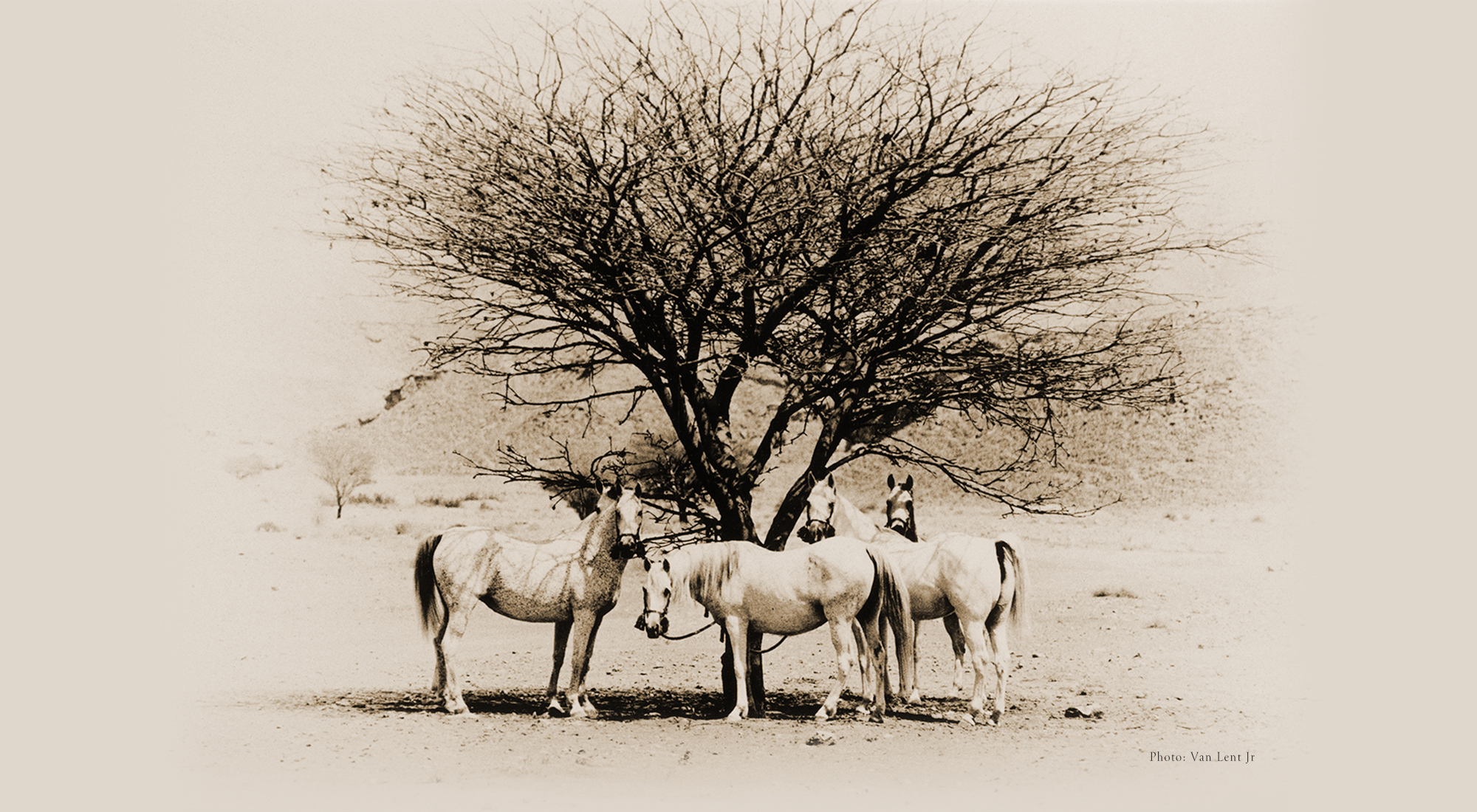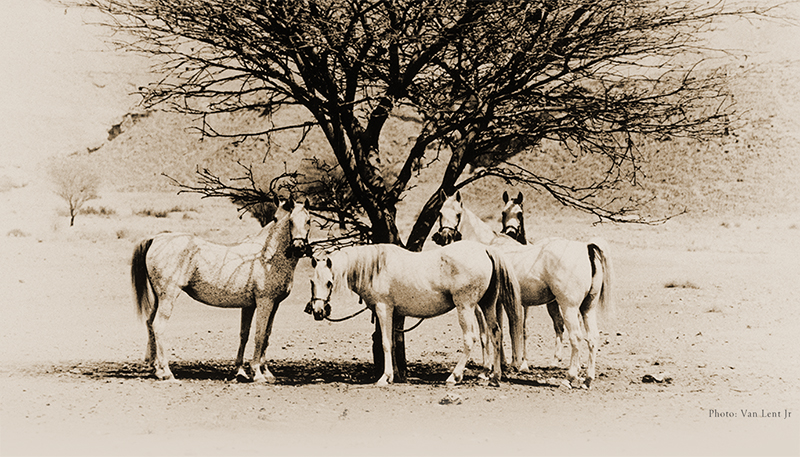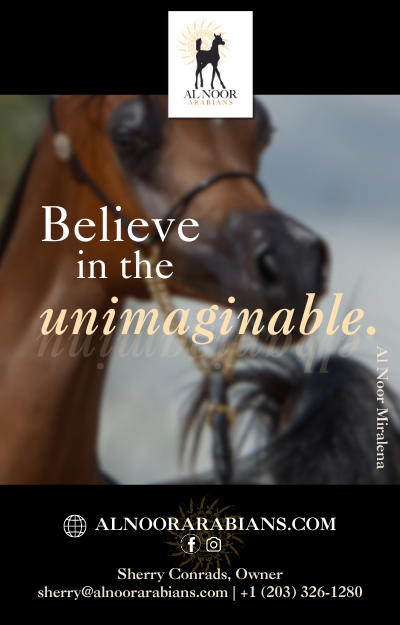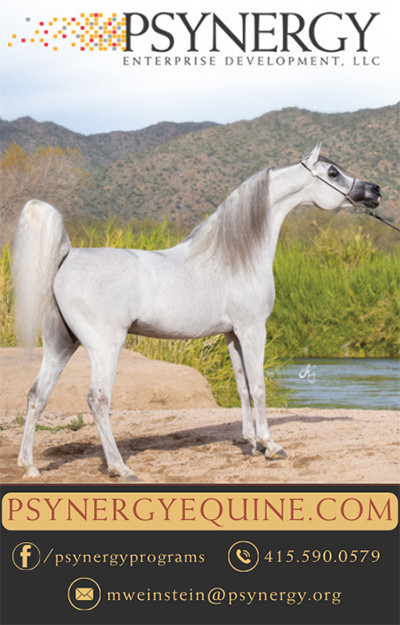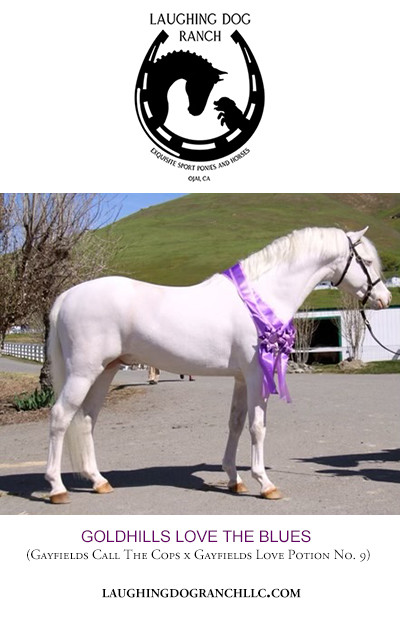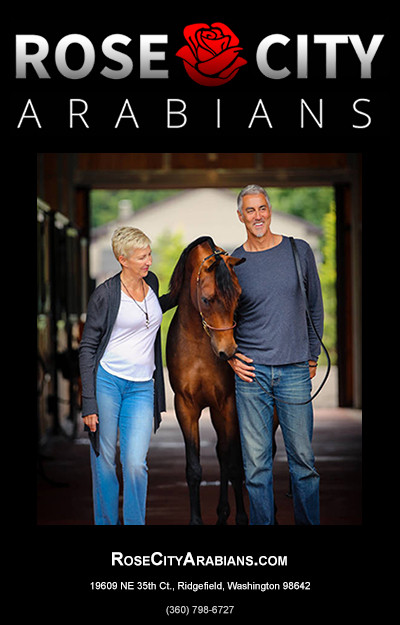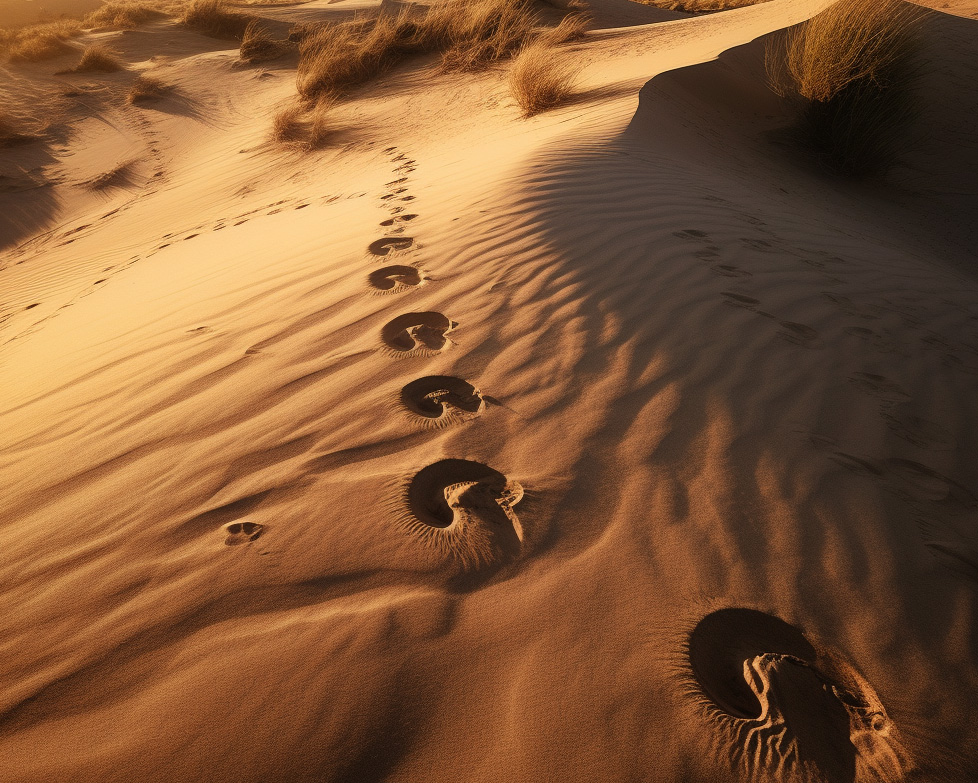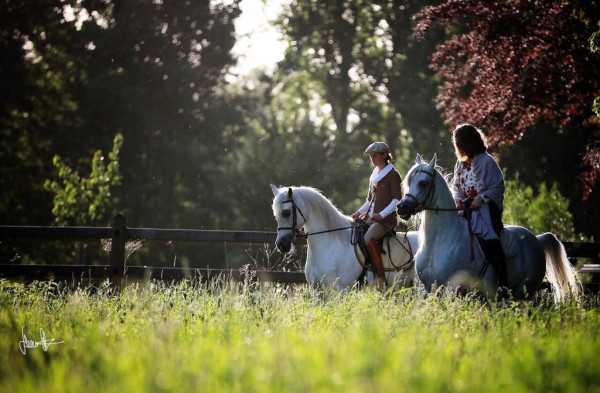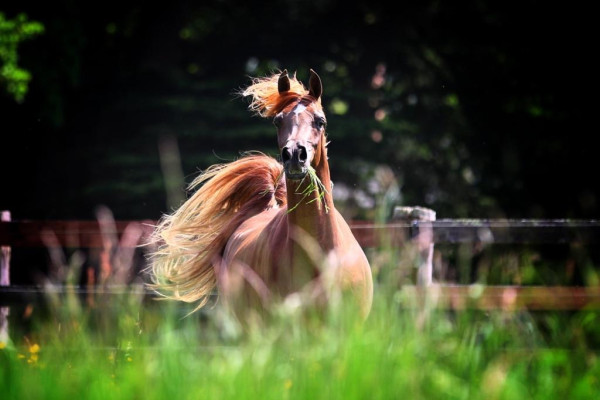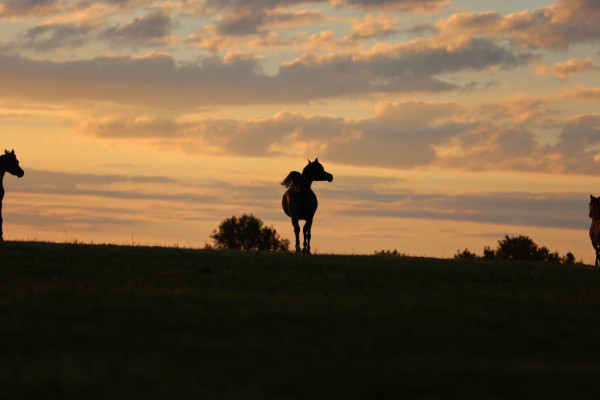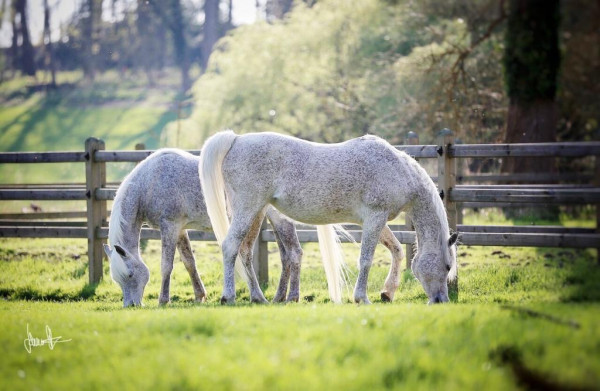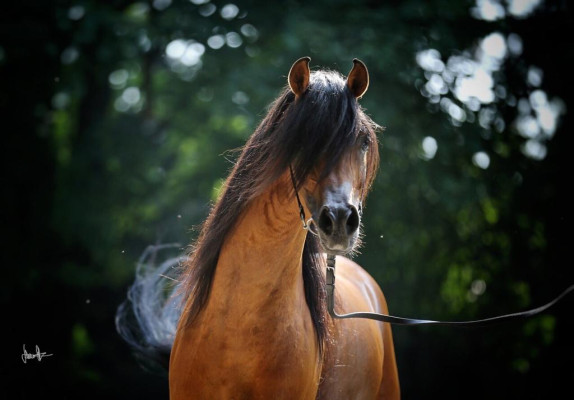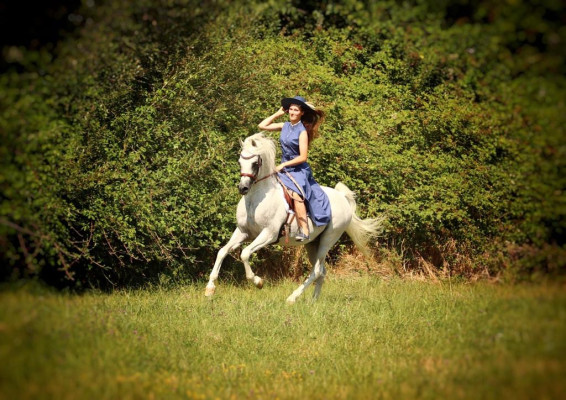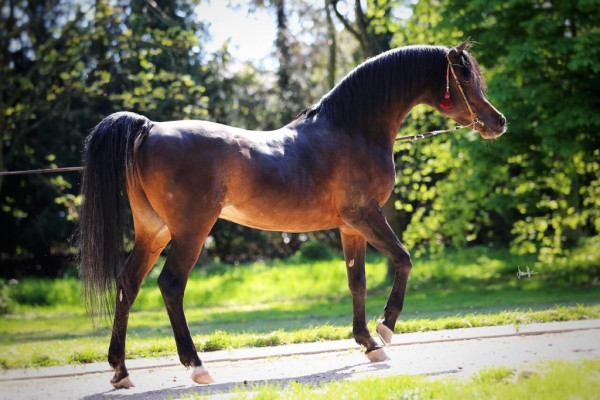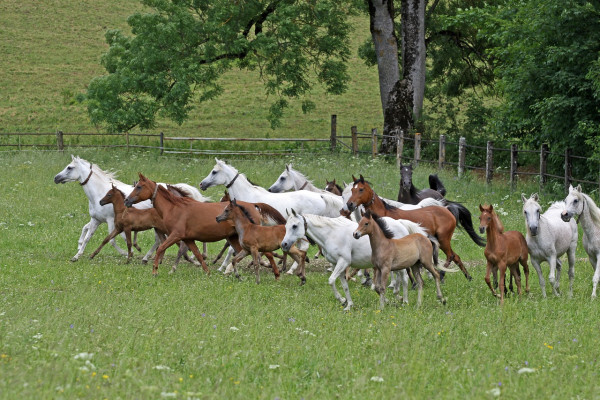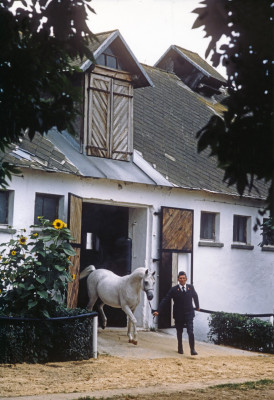The Ranch Horse Class,
by Michael Damianos
The Ranch Horse classes have enjoyed a meteoric rise in popularity in the last decade. They were first included at the U.S. Nationals in 2018 and immediately became some of the largest classes in the show. The ranch division is the perfect complement to the world of western Arabian horses. Reiners, Trail Horses, Cutters, Cow Horses, and even Western Pleasure Horses can find a second home in the Ranch Division. Success with horses in Ranch classes and conventional horse show classes is not unprecedented. Nancy Risen’s Khaberet PGN++// (*Khadraj NA x RA Kela) has won U.S. National Championships in open western pleasure in 2012 and open Ranch Rail in 2021. Karlan Downing’s KMA Angelo++++// (Los Angeles x Spanish Splendor) was the 2023 Mid-Summer National Champion in open Arabian Ranch Riding and Western Trail. Ingrid Bentzen’s Nspiring Forthe Top+// (Nobles Top Gun x Nspiring Jazz) has won multiple National Championships in Ranch Riding, Reining, English Trail and Western Trail.
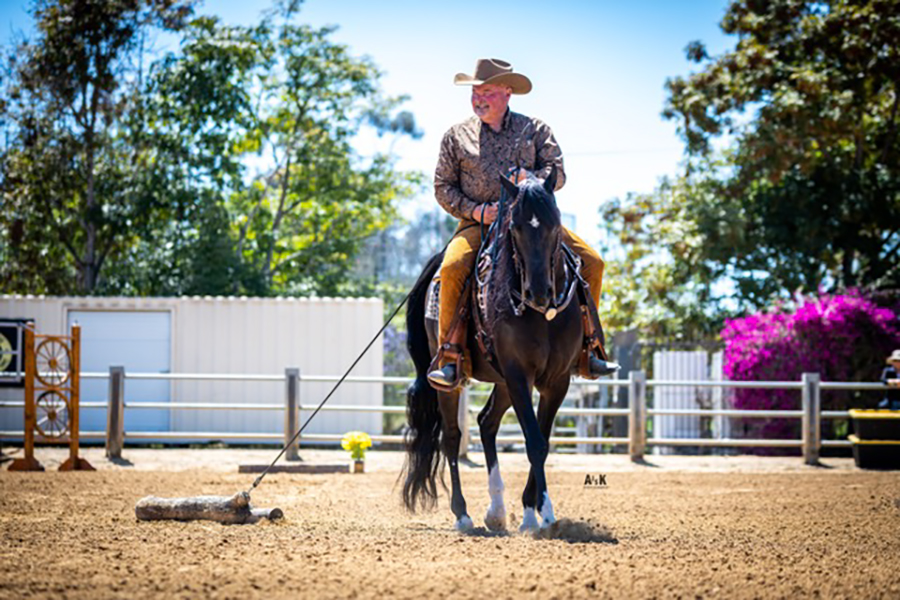 Automatic (Kharismatic PGA x Ava Luna V) pulling a drag on his way to winning Champion Ranch Trail at Region Two last year.
Automatic (Kharismatic PGA x Ava Luna V) pulling a drag on his way to winning Champion Ranch Trail at Region Two last year.
The reason for such successful crossover is simple. Ranch classes are not the sequel to the story of modern western competition, rather, they are the prequel. Every current western class has roots that stem from ranching tradition. Look at pictures of western pleasure horses from the ’50s or ’60s and you will readily see their resemblance to a ranch rail horse. Western pleasure horses originated from ranchers getting together and comparing their easy, smooth-riding horses.
There is something so very attractive about the authenticity of these classes. No wonder they are so popular. |
Cow Horse classes evolved from the teachings and techniques of the California vaqueros who worked the ranches of the Spanish land grants. Cutting’s beginnings trace to the necessity of separating cattle from large herds in the flat country of Texas. Reining originated from ranch hands who rode horses that moved cattle, and wanted to improve their horses’ skills, or demonstrate to other ranch hands what they had taught their horses. It appears that western competition has now come full circle.
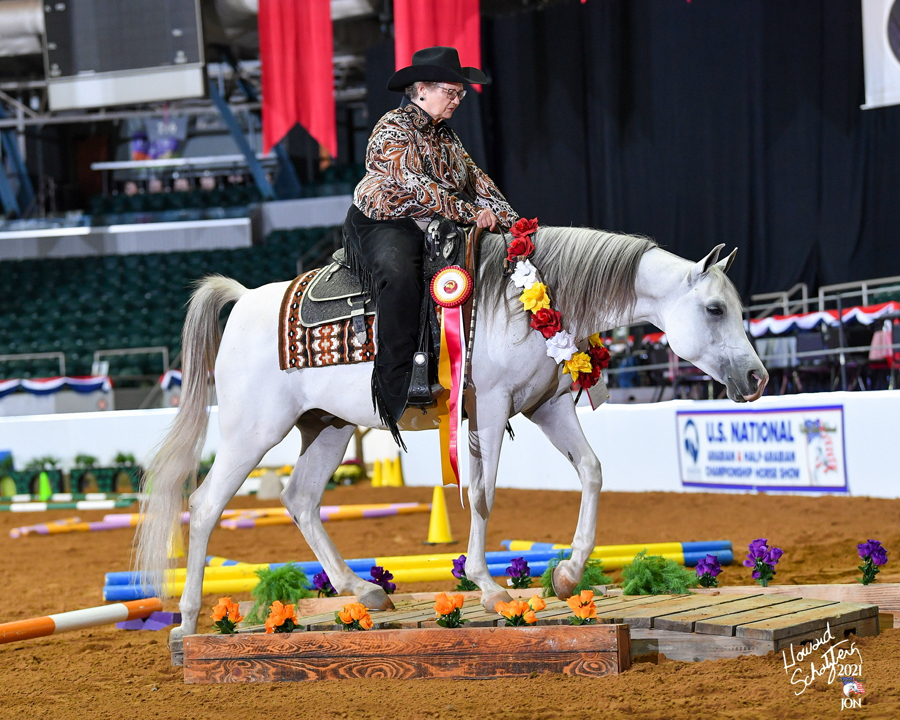 In the ranch division a horse is a cowgirl’s partner. Karlan Downing’s bond with her partner, KMA Angelo (Los Angeles x Spanish Splendor), is so strong that she had the confidence to make a victory pass bridleless. This photo is a testament to the aura of the west. Angelo was 2023 Mid-Summer National Champion in open Arabian Ranch Riding and Western Trail.
In the ranch division a horse is a cowgirl’s partner. Karlan Downing’s bond with her partner, KMA Angelo (Los Angeles x Spanish Splendor), is so strong that she had the confidence to make a victory pass bridleless. This photo is a testament to the aura of the west. Angelo was 2023 Mid-Summer National Champion in open Arabian Ranch Riding and Western Trail.
Are Arabians suited for this division?
Our rule book states, “The purpose of the ranch riding class is to measure the ability of the horse to be a pleasure to ride while being used as a means of conveyance from performing one ranch task to another. The horse should reflect the versatility, attitude and movement of a working ranch horse riding outside the confines of an arena.” (changed to bold italic as below. Is this needed in both places?)
Ranch horses should be:
- Durable and possess considerable stamina. No different than a Bedouin’s horse or a competitive endurance horse.
- Ready for the cowboy’s next move. He must have nerves of steel and not retreat from danger unless directed by the cowboy. Is that why Napoleon’s favorite mount was Marengo, an Arabian mount acquired in the Egyptian campaign.
- Have a high level of training and be able to move, stop and turn off their hindquarters.
- Strong enough to move and stop livestock. Arabian horses in history have been used for moving livestock from goats to camels.
- Negotiate natural obstacles. Every Arabian horse that is trail ridden does this each time they go out.
- Bond with a person and be the cowboy/cowgirl’s partner. What other breed of horse is better suited for bonding with a person? Did the Bedouin not let their mares sleep in their tents with them?
All of these criteria are well within the capacity of the Arabian horse. After all, the Arabian defeated the Crusaders, conquered Spain, survived two World Wars, has been the choice of long distance riders for centuries, and are the source of bloodstock for most other breeds in the world. Ranch horses may require a lot of skills, but historically so does the Arabian horse.
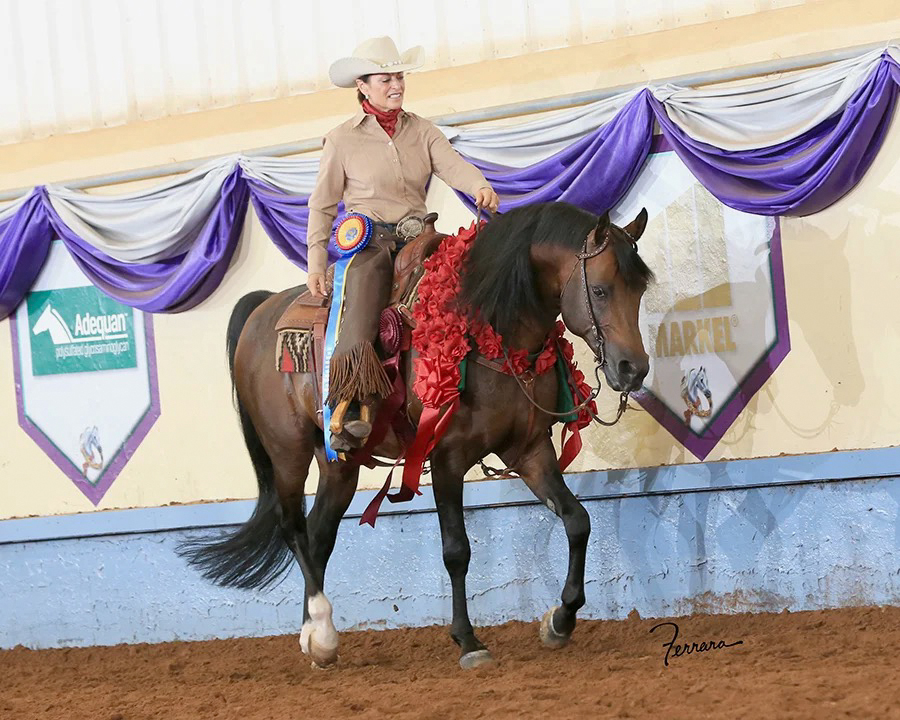 Nancy Risen’s stallion Khaberet PGN (Khadraj NA x RA Kela) has won U.S. National Championships in open western pleasure in 2012 and open Ranch Rail in 2021, with Liz Bentley, up.
Nancy Risen’s stallion Khaberet PGN (Khadraj NA x RA Kela) has won U.S. National Championships in open western pleasure in 2012 and open Ranch Rail in 2021, with Liz Bentley, up.
Why do exhibitors love this division?
Theodore Roosevelt is credited for saying, “I do not believe there ever was any life more attractive to a vigorous young fellow than life on a cattle ranch in those days. It was a fine, healthy life, too; it taught a man self-reliance, hardihood, and the value of an instant decision. I enjoyed the life to the full.”
Roosevelt’s words come alive when you see horses at the AHA Ranch Horse Championships or horses in ranch classes at the Arabian national shows. Horses are performing tasks that spectators can identify with — and exhibitors are having fun. Ranch classes inspire our imaginations to go to a historic and romantic time. Don’t we wish all horse showing did that? George Bernard Shaw said, “Life is not about inventing yourself. It is about creating yourself.” Where else in the horse show world is there a better forum in which to do so?
Look at pictures of western pleasure horses from the ’50s or ’60s and you will readily see their resemblance to a ranch rail horse. |
Where are Ranch Classes offered? Any and many AHA recognized shows now offer ranch classes. The AHA Ranch Horse Championships started in 2020. It offers all the Ranch Horse classes including cattle working classes and Ranch Conformation.
In 2018 Ranch Riding was introduced to the U.S. Nationals. It is a pattern class designed to test a horse’s ranch horse skills. In 2021 Ranch Rail was introduced at the U.S. Nationals. And in 2024 Ranch Trail is coming to the U.S. Nationals.
Ranch Riding, Ranch Rail and Limited Ranch Cow Work is offered at the Mid-Summer and Youth Nationals.
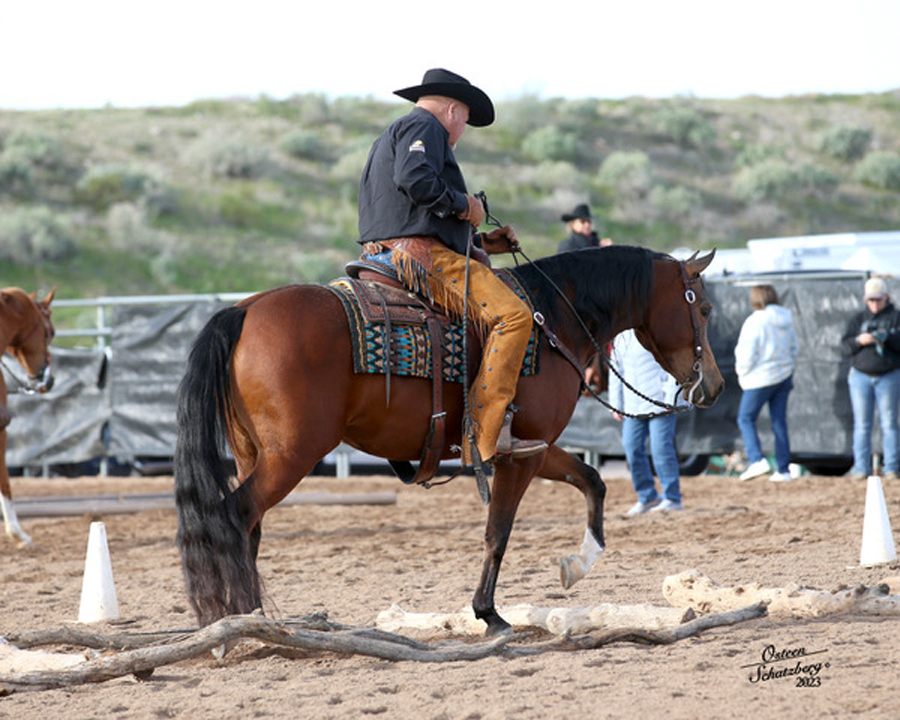 Chunky Chick (Rodan LTD x Cnicolena Mac V, owned by Katie Russell, is a multi Champion in the Ranch Horse divisions.
Chunky Chick (Rodan LTD x Cnicolena Mac V, owned by Katie Russell, is a multi Champion in the Ranch Horse divisions.
In 2025 the Arabian Trail and Ranch Horse Association will offer six classes at the Scottsdale Arabian Show:
- Purebred & Half-Arabian Ranch Riding Futurities for Junior Horses
- Purebred & Half-Arabian Ranch Prospect Class for Junior Horses (Ranch Rail)
- Purebred & Half-Arabian Ranch Riding Derby AOTR for 6, 7, and 8year olds
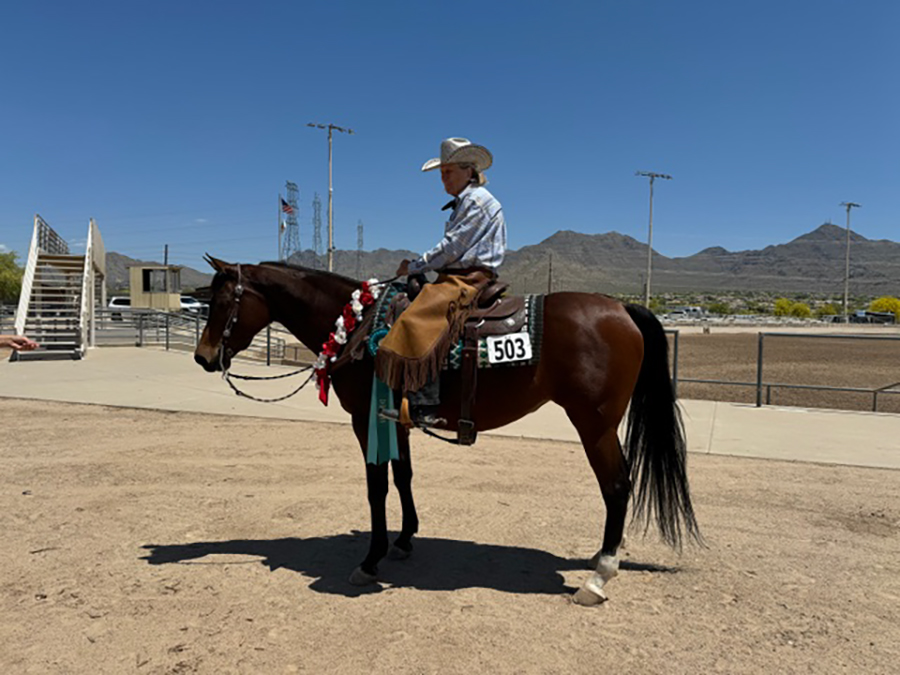 Ingrid Bentzen's mare Nspiring Forforthe Top (Nobles Top Gun x Nspiring Jazz) is a National Champion in Arabian Ranch Rail.
Ingrid Bentzen's mare Nspiring Forforthe Top (Nobles Top Gun x Nspiring Jazz) is a National Champion in Arabian Ranch Rail.
The Ranch Horse Division offers something for everyone. It is probably the most practical discipline in the horse show. As the description in the rule book says, “The horse should reflect the versatility, attitude and movement of a working ranch horse riding outside the confines of an arena.”
There is something so very attractive about the authenticity of these classes. No wonder they are so popular. Legendary rancher, Charles Goodnight, said. “When the ranch is at peace, no other life is more perfect.” Prophetic words, especially when you look at people having a blast in ranch classes at modern horse shows.


